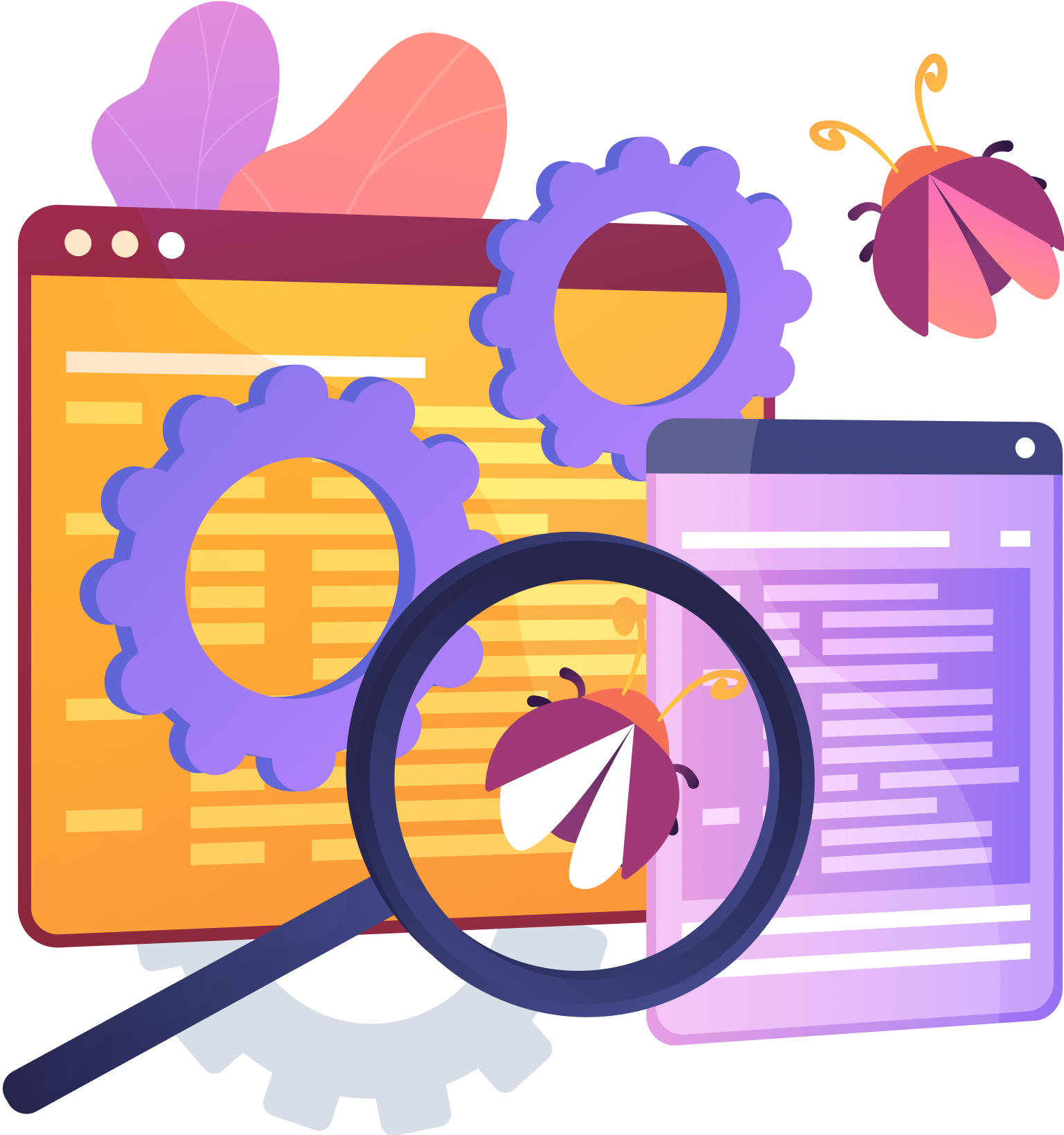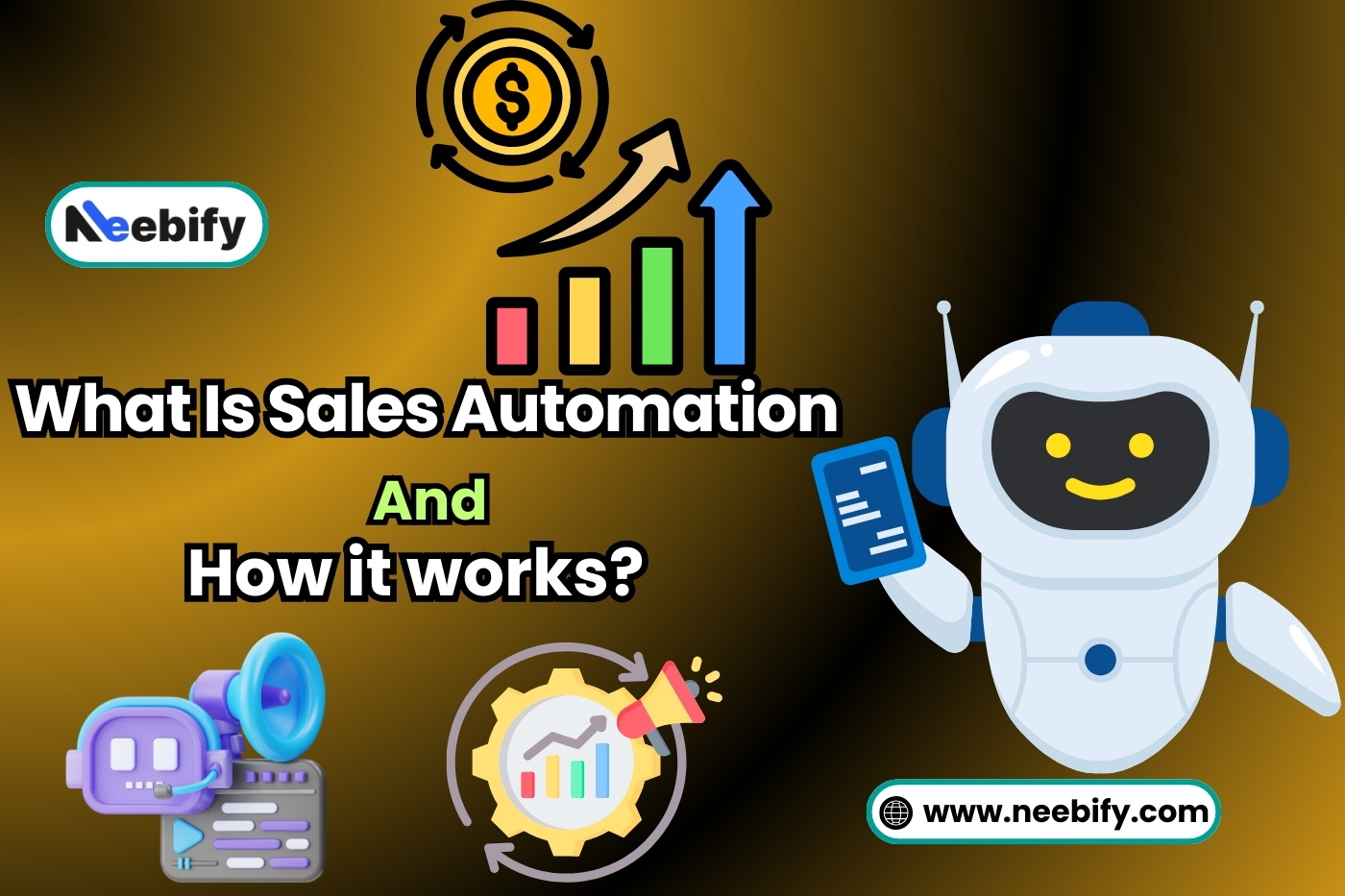How Ai work in Softawre Development and How to Make an Ai?

Artificial intelligence (AI) is a key part of software creation in this digital age. It drives innovation and efficiency across all fields. AI is very important because it speeds up processes and improves the user experience. To understand its importance, you have to recognize its many forms, from narrow AI designed for specific jobs to the lofty goal of how to make an ai.
AI tools and systems have many benefits. They provide developers with powerful tools that help them build software faster and more reliably. As AI keeps getting better, it will have a huge effect on software development. This will change how we solve problems and make the digital world more creative and efficient than ever before.
Importance of AI in Software's
AI software is an important part of today's tech world. It drives growth and efficiency in all kinds of fields. It includes developing smart algorithms and systems to solve difficult problems by mimicking human thinking and reasoning. These AI-powered solutions make things easier to do, use resources better, and help people make better decisions.
Businesses can get useful information from huge data sets using AI software, which lets them use data-driven strategies, predictive analytics, and personalized advice. AI development also leads to progress in healthcare, finance, and cybersecurity, which changes how we deal with problems and seize chances. Companies that want to thrive in the digital age and stay ahead of the curve must start using AI in their software development.
Various Types of AI
Artificial Narrow Intelligence (ANI)
Artificial Narrow Intelligence (ANI), also known as "weak AI," refers to AI systems specializing in specific tasks or fields of study. These systems excel at performing pre-defined, restricted tasks such as voice recognition, image sorting, and language translation.
There are set parameters that ANI works within, and it can't generalize beyond its assigned job. ANI is the brains behind many AI programs today. Still, it is limited and can't learn or reason outside its programmed tasks, which makes it different from more advanced AI.
General AI (strong AI)
General AI, also called strong AI, aims to help computers understand, learn, and use information in various areas like humans do. Narrow AI is only good at doing certain jobs. General AI, on the other hand, can think, solve problems, and adapt to new situations independently.
With this type of AI, the goal is to make it as smart as a human being, making flexible and creative decisions. General AI is still just an idea. However, efforts are being made to create AI systems with a wide range of cognitive abilities similar to humans.
These efforts reflect the ongoing development of AI technology. The goal is to make AI systems that can think and learn like humans do.
Artificial Superintelligence (ASI)
Asi, or artificial superintelligence, refers to an imagined level of AI development that is smarter than the smartest humans in all areas. ASI surpasses human intelligence and possesses unparalleled creative thinking, problem-solving, and cognitive abilities. General AI tries to be smart like humans.
Still, ASI is smarter than humans can understand, and it can quickly improve itself and develop new ideas. The development of ASI brings up important moral, social, and existential questions because it has the potential to change the course of human history completely. It also opens up new opportunities and challenges in artificial intelligence.
AI Based on Behaviour or Approach
Reactive Machines
Reactive machines are the most basic form of artificial intelligence (AI). They react to stimuli based only on pre-programmed orders and can't remember things or learn new ones. Like basic robots, these AI systems respond to spoken commands without considering past events.
They can only do simple, repetitive tasks in certain locations. Their job involves performing the same tasks repeatedly without any changes or adjustments.
Limited Memory Machines
A big step forward for AI is the creation of limited-memory machines that can store and use old data to make quick decisions. Unlike reactive machines, these AI systems, like self-driving cars, change how they act based on recent exchanges and cues from their surroundings.
They can only remember a few past events. This helps them adjust their reactions to new situations. As a result, they are better at handling change.
This makes them more efficient and effective. But compared to more powerful AI models, they still can't learn as much as possible.
Theory of Mind AI
In artificial intelligence, Theory of Mind AI is a new area that tries to give machines the ability to understand and interpret other people's thoughts, feelings, and goals. This kind of AI is still in its early stages. Still, it has the potential to help machines connect with others and understand human behaviour more naturally.
Theory of Mind AI could change how virtual assistants, customer service, and human-robot collaboration work by simulating empathy and understanding. This would make it easier for people and computers to talk to each other naturally.
Self-Aware AI
Self-aware AI is a concept in academia. It imagines artificial intelligence having human-like self-awareness, consciousness, and the ability to reflect on itself. Though it's still just a thought experiment and mostly found in science fiction, the idea of self-aware AI brings up deep philosophical and moral questions about what awareness is and how far machine intelligence can go.
Self-aware AI could lead to huge steps forward in AI autonomy, decision-making, and adaptation if it comes true. However, its development is still speculative, and there is a lot of disagreement about it in the scientific and philosophical groups.
READ ALSO - Innovative AI Business Ideas In Various Industries
Benefits Artificial Intelligence
Cost Effective
Many fields, including education and healthcare, can benefit from artificial intelligence (AI). It saves money because it cuts down on the time people need to spend on a job and helps them do more than one thing well at the same time. It also reduces mistakes people would have made if they had done these jobs by hand.
Faster
Artificial intelligence (AI) speeds up the process of finding solutions or doing tasks by computers instead of people, who need more time to do certain tasks by hand because people make mistakes when they do them by hand without any supervision during their work hours every day and until they retire (age 65).
Uses
Almost every business and field can use AI software, including technology, healthcare, retail, and manufacturing. Customer service chatbots help customers with their questions or complaints. Offices have utilized virtual assistants for administrative tasks such as arranging meetings. Police use face recognition technology to identify criminals in video footage.
Tools and Platforms For AI Driven Software Engineering
General-purpose Machine Learning Frameworks
Machine learning systems can be used by developers to create and utilize AI models in various fields. Libraries and APIs in these systems, such as TensorFlow and PyTorch, facilitate preprocessing data, training models, and concluding. Developers can use different methods and architectures to make machine learning solutions that are specific to use cases, like image recognition or natural language processing.
General-purpose frameworks make the development process easier by hiding complicated methods and providing scalable infrastructure. This lets AI-driven software engineering projects iterate and try new things more quickly.
Cloud-based AI Development Platforms
Cloud-based AI development tools let you build, train, and run AI apps in the cloud with scalable infrastructure and bundled services. Some examples of these platforms are the Google Cloud AI Platform and Microsoft Azure AI. They offer managed services like managing data, training models, and automating deployment.
Developers can use cloud resources to access powerful computing and storage options without building much infrastructure. Cloud-based app make it easier for people to work together, try new things, and make quick prototypes. This speeds up the development process and makes getting AI-powered software solutions to market easier.
AI For Code and Software Development
AI for Code and Software Development Tools uses machine learning methods to help developers write, test, and fix code more efficiently. These tools, like GitHub Copilot and CodeAI, look at code repositories, documentation, and programming patterns to generate ideas, autocomplete code snippets, and find mistakes or ways to improve things.
AI-powered development tools make developers more productive, reduce the work they have to do by hand and enhance code quality by using natural language processing and code analysis techniques. In addition, these tools make it easier and faster for developers to try out new computer languages, frameworks, and libraries.
Pre-trained Models and Platforms
You can use machine learning models and APIs for tasks like understanding speech, translating languages, and recognizing pictures. These platforms and models have already been trained." Models like OpenAI's GPT and BERT have been trained on massive datasets. You can customize these models to improve their performance on certain tasks or seamlessly integrate them into AI-powered software.
Hugging Face and TensorFlow Hub are two platforms that offer pre-trained model libraries. This lets developers use cutting-edge AI features without much training data or computing power. Developers can use pre-trained models to accelerate the development process and create more effective AI-driven software solutions.
how To make an Ai For Software Development
In AI software creation, setting goals is very important. For example, you could set up tasks like writing code or finding bugs. This ensures a clear direction, which cuts down on deviations and boosts output. Getting data from various places, like code files, is the first step in building strong AI models.
Cleaning and organizing data for effective training, as well as making sure accuracy and dependability, is what preprocessing is all about. Choosing the right methods that align with your goals and the type of data you have will improve performance. We use iterative cycles to train the model and enhance job performance.
We then use testing and evaluation to ensure the model's accuracy and reliability. Adding AI to processes without problems makes them more productive, and ongoing improvement keeps them useful and relevant over time.
The Role of AI in Software Development
Artificial Intelligence in Modern Business Operations
Artificial intelligence (AI) is changing how businesses work by improving customer service, employees' productivity, and improving processes. AI has a huge effect, from automated chatbots that offer fast help to predictive analytics that best use resources. AI helps businesses make data-driven decisions by looking at large datasets and learning from patterns. This makes them more efficient and competitive in today's fast-paced market.
AI-Powered Software Applications
More and more, modern software programs are adding AI features that make them safer, more reliable, and easier to use. AI algorithms power features like natural language processing for improved user interaction, recommendation engines for more personalized experiences, and anomaly spotting for enhanced security. Using AI, software programs can learn how users behave and guess what they need. They can also ensure users have a smooth experience across all platforms, making consumers happy and loyal.
AI Accelerating Software Development
AI accelerates product creation, allowing developers to produce better products more quickly. AI speeds up the development process using predictive modelling, automated testing, and automatic code generation. This reduces the time it takes to get a product to market and the cost of development.
AI frees teams to focus on new ideas and creativity by handling boring tasks and giving developers more tools. This leads to better software products that meet changing customer needs.
AI in Data Security Management
AI plays a crucial role in safeguarding data and ensuring the safe storage, retrieval, and transmission of information. AI-powered solutions, such as machine learning-based danger detection, behavior analysis, and encryption algorithms, improve security. These technologies can identify and address risks before they become a problem.
AI improves data protection, compliance, and resilience against new cyber threats. This keeps private information safe and builds trust in digital ecosystems.
Expanding Role of AI in Business
AI is important for all parts of a business, from sales to customer service, because it makes operations run more smoothly. AI helps companies make smart choices and grow by automating routine tasks, making the best use of resources, and giving them information they can act on. In today's digital economy, AI-driven strategies help businesses adapt to changing market conditions, improve customer experiences, and stay ahead of the competition. These strategies include personalized marketing campaigns and supply chain optimization.
AI Applications For Modern Tasks
AI-powered apps do complicated jobs quickly and well, such as recognizing images and extracting data from them. Artificial intelligence (AI) technologies automate manual tasks, improve accuracy, and boost productivity. For instance, AI technologies enable self-driving cars to navigate traffic and virtual assistants to schedule meetings.
AI applications use machine learning, deep learning, and computer vision algorithms to develop new ways to solve various problems. This opens up new opportunities and changes how businesses work in many areas.
AI Ensuring Software Security
AI tools like Selenium help find holes in software ai code generator, ensuring strong security measures are in place. AI improves software security by finding and reducing possible risks before they happen. It does this through automated testing, code analysis, and anomaly detection.
AI strengthens cybersecurity measures in today's connected digital world by constantly watching system behaviour and spotting odd activities. This keeps data breaches, malware attacks, and other security threats at bay.
AI Influence on Consumer Behavior
AI algorithms alter how people act, affecting their buying decisions and improving the user experience. Businesses can better understand and predict what customers want by using AI-driven insights, from personalized product suggestions to targeted advertising efforts. AI helps companies customize their products, get customers more involved, and increase sales by looking at huge data sets and guessing what people want. This builds brand trust and long-term profits in competitive markets.
Conclusion
Software and apps are getting more complicated, so we need more and more AI to keep up. Progress in this area could reduce software and maintenance costs.
It could also enhance cybersecurity measures. Additionally, it could encourage the development of innovative applications. Lastly, it could open new job opportunities for IT professionals.
It is clear that we need a technology partner who fully understands our needs. This will help us streamline and simplify our processes. Software archive management is a growing field because businesses are looking for better ways to keep track of the code they already have.
FAQs About How To Make an AI
Q.1- how to create an ai for software development?
A- To create AI for software development, follow these steps. First, set goals. Next, gather data and process it. Then, choose methods and train the model.
After that, test and assess it. Finally, integrate it with software and continuously improve it.
Q.2- What are the key steps in creating an ai for software development?
A- The most important steps are setting goals, collecting and preprocessing data, choosing methods, training the model, testing and evaluating, integrating with software, and always making the AI work better.
Q.3- What part does AI play in making software?
A- AI improves software development by automating tasks like code writing and bug finding. Additionally, it enhances productivity, streamlines work processes and ensures the correct and consistent execution of various development steps.
Q.4- What role does AI play in software development?
A- AI aids ai website builder by speeding up tasks, reducing mistakes, increasing efficiency, making decisions easier, and letting workers focus on more important tasks, all of which ultimately lead to better software products.
Q.5- What are the most common problems how to make ai for software development?
A- Some common problems are getting good data, choosing the right algorithms, making models work better, figuring out how to add AI to existing processes easily, and ensuring that the system keeps improving to meet changing development needs.









